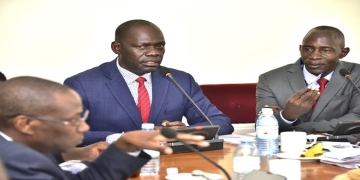
KAMPALA, Uganda — Head teachers across Uganda say the rollout of the new abridged Advanced Level (A-Level) curriculum is facing significant challenges, including a lack of instructional materials, insufficient teacher training, and assessment uncertainty.
Regan Katerenga, head teacher of Fort Portal Secondary School, reported that since the term began, his school has only received notification of the new curriculum without any materials for students. “Our teachers and students are completely in the dark; there are no reading materials for us to teach from,” he said, adding that the National Curriculum Development Centre (NCDC) has not organized workshops to clarify the curriculum’s specifics. His school is now looking to others in Kampala for guidance.
Asuman Kiwanuka, director of studies at Alliance High School Nansana, stated they are still using the old curriculum due to a lack of direction from the Ministry of Education. He acknowledged the new curriculum’s potential but noted that teachers are not yet adequately prepared.
Despite Parliament allocating 7.132 billion shillings to the NCDC in March for the curriculum’s “immediate and interim interventions,” Ministry of Education spokesperson Dr. Denis Mugimba maintained that teachers are aware of what is required and that more training will be conducted.
Grace Ndagire, head teacher of Kinoni Girls Secondary School in Rwampara District, praised the curriculum’s focus on creativity and critical thinking but said her teachers have not been retrained. She also expressed confusion about the new assessment methods, noting the reduction in exam papers without clear guidelines.
Asadu Kirabira, chairperson of the National Education Institutions Association (NAPEA), said these issues were anticipated and that the government’s approach of uploading content to school portals has been ineffective due to a lack of guidance. He stated that efforts are underway to engage the ministry and NCDC to address these gaps.
Moses Ayebare, head teacher of New Bukiro High School in Mbarara District, reported that teachers at his school are attempting to implement the new curriculum despite the absence of textbooks, both in bookstores and online.
Musa Mukasa, head teacher of St Peter’s High School in Masindi District, emphasized that curriculum reforms require structured teacher training and well-developed materials to avoid a “disjointed learning experience.”
Some schools, like Namasere High School in Bugiri District, have taken the initiative to purchase textbooks while awaiting government delivery, according to head teacher Patrick Kibuka. However, Kalimu Kisalwe, head teacher of Naminyagwe Muslim SS in Bugiri District, said his school is currently using the Lower Secondary School Curriculum as a related alternative, awaiting further ministry communication.
Conversely, Richard Icumar, deputy head teacher at Soroti SS, indicated that their students are adapting to the new curriculum and teachers are familiar with the content, which he said primarily involves the removal of some topics.
The ongoing overhaul of the A-Level curriculum is expected to be fully implemented by 2028. However, the government introduced this revised version to ensure continuity for students who underwent the Lower Secondary Curriculum. Proposed changes to the full curriculum include replacing the General Paper with “contemporary studies” focusing on practical skills and a more targeted approach to subject combinations. A modular assessment system is also being considered.
The new syllabus also incorporates cross-cutting issues such as environmental awareness, health awareness, and citizenship across all subjects.








